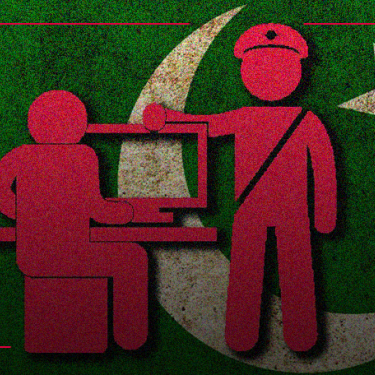06.06.2024
Glenn Diesen
© Sputnik/Vitaly Ankov
Last autumn, President Putin outlined Russia’s six tenets of international relations. These can be summarised as developing an interconnected world that accommodates civilizational diversity, equal representation, and a balance of interest. The tenets represent a repudiation of the post-Cold War liberal hegemonic order based on alliances and universalism, in which the dominant state sets the framework and conditions for development.
Hegemonic systems proclaim to represent universal values to justify a system of sovereign inequality in which they demand the prerogative to rule over other peoples. While universalism is denounced for legitimising hegemony, it is also seen to undermine domestic stability as development must take into consideration distinctive civilisational characteristics.
These ideas have deep roots in Russian conservatism, which emphasises both the domestic and international necessity to reject universalism. Putin has previously presented his vision of Eurasian integration as a multipolar initiative that must accommodate civilizational distinctiveness:
“I want to stress that Eurasian integration will also be built on the principle of diversity. This is a union where everyone maintains their identity, their distinctive character and their political independence… We expect that it will become our common input into maintaining diversity and stable global development”.
Xi Jinping famously stated that the Soviet Union collapsed due to the “pursuit of historical nihilism, confusion of thought”, which was exacerbated by Russia developing along the Western model. Putin’s ideas of an interconnected world that preserves civilisational distinctiveness is shared China, which recognises that its rapid modernisation must be built on solid foundations of China’s 5000-year history. Xi launched China’s Global Civilisation Initiative that rejected universalism to the extent it legitimised sovereign inequality and a hierarchical ordering of superior civilisations versus inferior civilisations. In a speech about the Global Civilization Initiative, Xi argued:
“A single flower does not make spring, while one hundred flowers in full blossom bring spring to the garden… We advocate the respect for the diversity of civilizations. Countries need to uphold the principles of equality, mutual learning, dialogue and inclusiveness among civilizations, and let cultural exchanges transcend estrangement, mutual learning transcend clashes, and coexistence transcend feelings of superiority."
Domestic Development
Conservatism recognises that disruptive socio-economic development must be anchored in the stability of the past. Each civilisation has a unique history and thus also a distinct path to development. The stability of the increasingly universal modern rests on the maintenance of the distinctive premodern.
Russian conservatism has subsequently advocated for rejecting a uniform and universal path to development. One of Putin’s favourite conservative thinkers, Nikolai Berdyaev, opined that “the conservative principle is not by itself opposed to development, it merely demands that development be organic, that the future does not destroy the past but continue to develop it”. Conservatism “unites the future with the past” and this link must not be severed."
Nikolai Danilevsky similarly warned against “the cultural domination of one cultural-historical type” as it would “deprive humanity of one of the necessary conditions for success and perfection – the element of diversity”. Dostoyevsky also cautioned that Russia’s obsession with the West’s path to development obstructed Russia from pursuing its organic path. Great powers benefit the world when they contribute something unique to the world, “be it only a single ray of light, because they have remained themselves, proud and steady, arrogantly independent" (Dostoyevsky 1986: 260).
Universalism also introduces stagnation and decay as it eliminates the competition and meritocracy of ideas. In ancient Greece, there was a reluctance to integrate the city-states and centralise power as universalism threatened the Hellenic idea of diversity of philosophy, wisdom, and leadership. Competition between city-states was the source of new ideas and vitality that elevated Greek civilisation that experimented with various forms of government. The US political system was influenced by the Greek city-states as power was decentralised down to the state level to limit the power at the federal level.
The International System
The modern world order, established at Westphalia in 1648, rejected universalism and accommodated cultural distinctiveness as the condition for a multipolar system of sovereign states. Claims by the Holy Roman Emperor to represent a universal monarchy based on Catholicism was the hegemonic to rule over all peoples. The principle of sovereign equality was cemented by accommodating cultural and religious distinctiveness, which implied their distinctive paths to development.
Seemingly benign intentions of universal values uniting humankind can also eviscerate sovereignty. Socrates announced he was a citizen of the world as an expression of a shared humanity and an appeal to the universality of mankind as opposed to confrontational tribalism. Yet, Alexander the Great appealed to the same sentiment of a “brotherhood of man” and “the unity of mankind” as he expanded his empire. Universalism presents a reasonable counterweight to moral and cultural relativism as some values are superior to others, although it must be balanced by internal differences and sovereignty.
The idealist internationalism of the French Revolution and Bolshevik Revolution purported to elevate universal human freedoms, although in the process undermined the principle of sovereignty. What began as genuine universalist causes eventually became subservient to national causes. Liberal hegemony followed the same path as universal values were linked to an entity of power pursuing hegemony. Liberalism carries with it the dual legacy of pacification and imperialism because it repudiates sovereign equality. The hierarchical ordering of states under a universal liberal banner legitmises an international system of sovereign inequality based on progress.
Under the liberal imperialism of the British, it was accepted that sovereignty was conditioned on a uniform approach to development. Sovereignty was the prerogative of civilised European states as underdeveloped barbarians were not deemed capable of the responsibility. Civilised states had both the right and responsibility to civilise barbaric peoples. The international system thus distinguished between Rudyard Kipling’s civilised “garden” and the barbaric “jungle”.
While there is a contradiction between hegemony and liberalism, many British liberals considered hegemony to be a requirement for advancing its universal ideals. The international system thus had to accommodate two sets of rules as a requirement when operating in the garden or the jungle. Case in point, John Stuart Mill argued:
“Despotism is a legitimate mode of government in dealing with barbarians, provided the end be their improvement, and the means justified by actually effecting that end. Liberty, as a principle, has no application to any state of things anterior to the time when mankind have become capable of being improved by free and equal discussion”.
The arguments for liberal empire of the 19th century shared striking similarities with the arguments for liberal hegemony after the Cold War. The so-called rules-based international order has largely been based on sovereign inequality as the civilised versus barbarian divide has been replaced by the liberal democracies versus authoritarian divide. Robert Cooper, the British diplomat and advisor to Tony Blair, argued for a “new liberal imperialism” as “Among ourselves, we keep the law but when we are operating in the jungle, we must also use the laws of the jungle”.
While democracy and human rights were initially ideals to augment sovereignty and constrain power, they are instead cited to enable the use of force. EU foreign policy chief Josep Borrell similarly used the language of Kipling to infer the need for sovereign inequality and nation-building as the “gardener” had a moral obligation to cultivate the jungle:
Europe is a garden. We have built a garden… The rest of the world—and you know this very well, Federica—is not exactly a garden. Most of the rest of the world is a jungle, and the jungle could invade the garden.... The gardeners have to go to the jungle. Europeans have to be much more engaged with the rest of the world. Otherwise, the rest of the world will invade us.
Russia’s rejection of unipolarity and universalism
In the 1990s, Russia’s post-communist distinctive communitarian identities should have been strengthened. Instead, Russia embarked on a universalist path to development in which it was weakened and could seemingly share the fate of the Soviet Union.
Based on a universal path to development, diplomacy was replaced with socialisation. The relationship between the West and Russia was conceptualised as that between a subject and an object or between a teacher and a student. Hegemony was portrayed as benevolent as the dominant West would selflessly take on the responsibility to civilise Russia toward universal values.
Traditional diplomacy and an equal partnership were rejected as NATO and the EU envisioned a pedagogic relationship in which Russia would be “socialised” by rewarding “good behaviour” and punishing “bad behaviour”. Cooperation entailed unilateral concessions by the student, while any concessions to Russia was depicted as “appeasement” and a betrayal of universal values.
While unipolarity was sustained by universalism and sovereign inequality, the multipolar world order will be built on principles like civilisational distinctiveness and diversity, equal representation and sovereign equality, and a balance of interest.
Views expressed are of individual Members and Contributors, rather than the Club's, unless explicitly stated otherwise.






